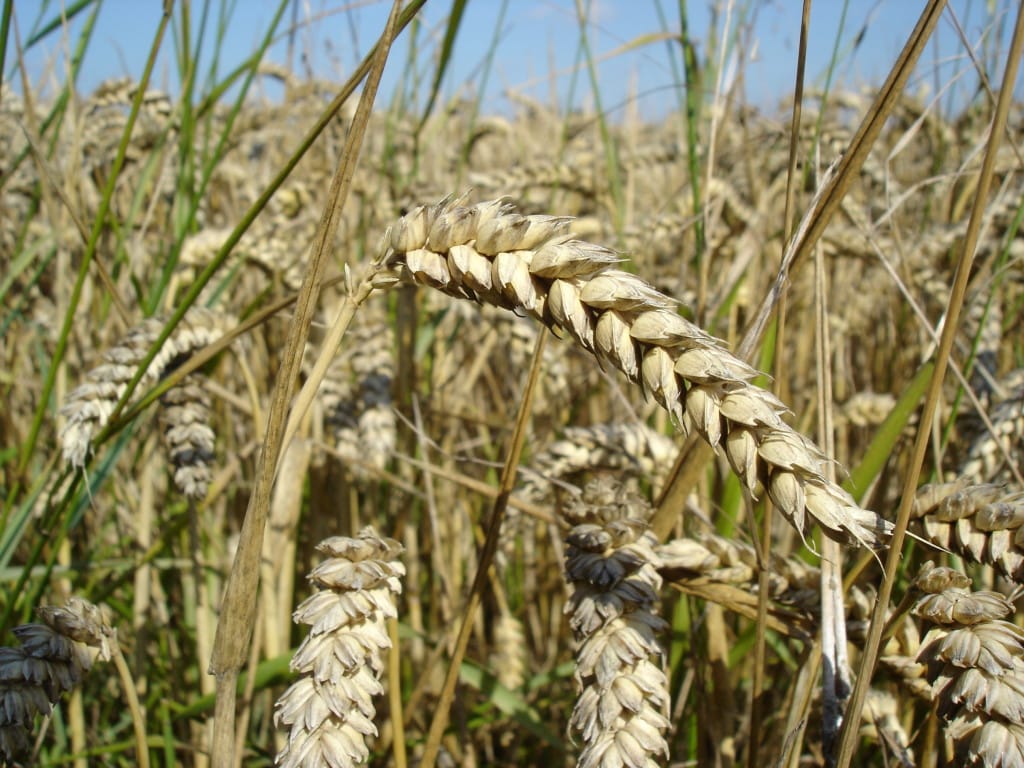Gluten Allergies and the Eucharist
I have a good friend who has a gluten allergy. He cannot receive the Eucharist under the species of bread. His scenario raises a common question:
If bread transubstantiates into the Body of Christ, why do people with Celiac disease avoid receiving the Precious Body? If there is no longer any bread, there is no longer any gluten, right?
No quite. Before looking at what Saint Thomas Aquinas says, let’s understand Celiac disease and gluten allergies.
Celiac disease is an immune reaction to eating gluten, a protein found in wheat, barley and rye. This rules out bread, beer, and yes, even cake.
Does transubstantiation remove gluten properties?
Thomas Aquinas would say that the accidental properties of the gluten are still active. Hence, someone with an allergy to gluten will still react to the accidental property of this grain protein even though the substance of bread has changed.
Likewise, if one drank a gallon of the Precious Blood, he would become drunk. In fact, Saint Paul complained that Christians in the first century were getting drunk off the Precious Blood! “One, indeed, is hungry, and another is drunk” (1 Cor 11:21).*
The accidents remain while the substance changes. The physiological human response to the properties of alcohol or gluten remain even after transubstantiation. Likewise, our physiological response to the calories (also accidental properties of bread and wine) are real. We truly receive natural nourishment from the Holy Eucharist, although the purpose of the Blessed Sacrament is provide supernatural and sacramental nourishment through habitual grace.
Here’s Saint Thomas on this subject:
But the senses witness to the untruth of what some maintain; viz. that the species do not nourish as though they were changed into the human body, but merely refresh and hearten by acting upon the senses (as a man is heartened by the odor of meat, and intoxicated by the fumes of wine). Because such refreshment does not suffice long for a man, whose body needs repair owing to constant waste: and yet a man could be supported for long if he were to take hosts and consecrated wine in great quantity. (Summa theologiae, III, q. 77, a. 6)
What should Catholics with gluten allergies do?
When provisions cannot be made, those who have Celiac disease (gluten allergy) should receive the chalice alone since the entire Christ, Body, Blood, Soul, and Divinity, is present under both species. If this is not possible, a spiritual communion suffices and provides the same amount of grace, as the Council of Trent teaches. A gluten free host must be truly wheat.
What about a wheat-less Eucharist?
The suggestion to make hosts from rice is no good. The Eucharist can only be confected from wheat bread. Nothing else. No raison bread. Not even barley bread. Not rice bread. Wheat bread. This relates to the Jewish symbolism relating to wheat in the Old Testament – but that’s a whole different post.
Why did God do this?
God knows all things. He knew that he would create people with Celiac disease. He also knew that He would institute the Blessed Sacrament with wheat bread. The Church in her mercy and wisdom has created other provisions to help people who suffer from this disease.
Precious Jesus in the Holy Sacrament of the altar, pray for us.
Godspeed,
Taylor
[reminder]
Please “share” this on Facebook with people who have gluten allergies.
What to Watch Next
SHOP THE TAYLOR MARSHALL STORE
Dive Deeper

GET CONFIDENT IN YOUR FAITH
Explore the fascinating world of Catholic teachings with Dr. Marshall. Together you’ll unpack the brilliant answers the Church gives to tough questions about the Faith. The best part: you go at your own pace. Start this exciting journey today.


 >
>



